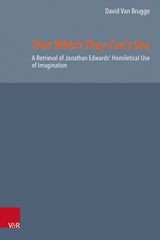
A Communication Ethic of Dialogic Reformation
Refo500 Academic Studies (R5AS)
Por Michael R. Kearney

| Descarga inmediata | |
Formato
PDFProtección
DRMIdioma
InglésAño Lanzamiento
2025Sinopsis
Calls for reformation were widespread across the medieval Roman Catholic Church, but few were as nuanced or philosophically rich as the lifelong work of Cardinal Nicholas of Cusa (1401–1464). Cusa centralized the coincidentia oppositorum, the coincidence of opposites, in our knowledge of God and the mystical institution of the Church. In his book, Michael R. Kearney traces Cusa's historical impact on philosophy of communication and communication ethics with an eye toward the health of institutions in a postmodern moment of cynicism and decline. Cusa loved the church and fought passionately for its reform, energized by the "clouded vision" of a God who is beyond opposites. This champion of dialogic reformation offers churches and communities an unfinished task with a unity of contraries at its heart: upholding local narrative ground with tenacious loyalty while working in an increasingly large world.
Michael R. Kearney
Michael R. Kearney, PhD (Duquesne University, 2024), is Assistant Professor of Communication at Dordt University in Sioux Center, IA. He has published eleven journal articles in outlets such as Explorations in Media Ecology, Rhetoric of Health & Medicine, and Rhetorica: A Journal of the History of Rhetoric. He is coauthor of the third edition of Communication Ethics Literacy: Dialogue and Difference (2023) with Janie M. Harden Fritz and Leeanne M. Bell McManus. His research focuses on communication ethics, dialogue, crisis communication, and religious communication. He is a member of the Eastern Communication Association, the National Communication Association, the Religious Communication Association, and the International Society for the History of Rhetoric.
Compatibilidad
El ebook A Communication Ethic of Dialogic Reformation está en formato PDF y se encuentra protegido con DRM.
Puedes leer este eBook en los siguientes dispositivos:
- En una PC o MAC: Descarga el programa gratuito Adobe Digital Editions y autorízalo con una cuenta ID de Adobe.
- En un smartphone o tablet (iOS o Android): Descarga la app Aldiko Next o la app PocketBook.
- En un lector de libros electrónicos (eReader): Verifica que acepte ebooks con DRM de Adobe.
- Este eBook NO ES COMPATIBLE con Kindle.
Datos del libro
- Editorial:
- Vandenhoeck & Ruprecht
- ISBN:
- 9783647502168
- Idioma:
- Inglés
- Tamaño:
- Kb
- Fecha de lanzamiento:
- Marzo 15, 2025
- Protección:
- DRM
- Géneros:
Religión










